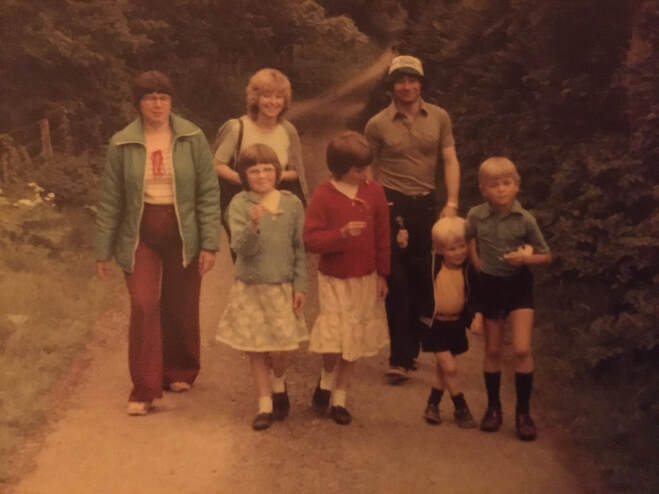
Members of my family once owned a windmill in Spalding, Lincolnshire. My grandfather worked there as a boy. Time passed. My Grandfather, uninspired, unemployed in the the early 1930s, joined the army, went to war. But some of my family remained.
In the 1970s, in May, my father, mother, brother and I used to visit my Grandfather's brother and his wife (Auntie Edna and Uncle Bill) to observe the annual Tulip Parade in the town. I have fond memories of watching the classic 1979 FA Cup Final between Manchester United v Arsenal in Spalding, the women and children mostly outside observing the garish floats pass by the end of the garden, the men mostly crammed into a smoky living room, the older men in their darkly coloured suits, witnessing Alan Sunderland win the game for Arsenal in the dying moments, me dashing between the two locations. These are the memories that remain, the memories that haunt with their vivid tastes and textures, the memories that connect the past to the present, in perpetuity.
In January and February of 2021 I spent the long, dark and cold winter lockdown reading Edward Parnell’s deeply poignant, heart-rending and wonderful book, Ghostland. It is wistful, melancholic, laced with nostalgia and loss, touched of the thing the Portuguese call 'saudade'. Or something like my understanding of what that word might mean.
It’s a book about recent family history, part memoir. There’s nature writing in its pages too, stories of bird-watching and shared knowledge about birds, of the British landscape and the creative minds inspired by it, of folklore and legend, of writing and writers, of ghost stories, of literature and children’s literature, of TV and film. So many leaping off points. So many pleasurable diversions. Works I remember. Works I’d forgotten. Works I’d meant to read. And new works I’d never heard of, now eagerly awaiting my attention.
Ghostland spoke very softly, but very soulfully to me in the winter. It reminded me of similar locations for family holidays and helped me escape, however fleetingly, to those places. The shared images of the writer and his family match the childhood images of my own. Tasked, albeit voluntarily with sorting boxes of family photographs, I escaped into those too.
The past and the past and the past before that. Ever onward into the past.
Edward Parnell and I emerge from a similar geographical location. We’re from a similar time too, of a similar age. Ghostland is a book, in part, about memory, of the dichotomous joy and burden of remembering, in the same way that FAN, my 2014 novel, is a book about memory, a book, in essence, about ghosts.
Family holiday with neighbours. My mother and father are at the rear. (c1979)
And that remembering, alongside all that came with it in the cold January of 2021, inspired Toadstone, my short story that has, somewhat miraculously, been shortlisted for the BBC National Short Story Award 2021. Toadstone is a story about memory, nostalgia, revisiting the past (and the effect of the past upon the present). It’s about return, family history, loss, ageing (and ageing parents), illness, folklore, healing, remedies and cures. And it’s a story about death and loneliness and how those two things are oftentimes barely removed from one another.
Without Parnell's Ghostland, it may not have become a story at all.
In the 1970s, in May, my father, mother, brother and I used to visit my Grandfather's brother and his wife (Auntie Edna and Uncle Bill) to observe the annual Tulip Parade in the town. I have fond memories of watching the classic 1979 FA Cup Final between Manchester United v Arsenal in Spalding, the women and children mostly outside observing the garish floats pass by the end of the garden, the men mostly crammed into a smoky living room, the older men in their darkly coloured suits, witnessing Alan Sunderland win the game for Arsenal in the dying moments, me dashing between the two locations. These are the memories that remain, the memories that haunt with their vivid tastes and textures, the memories that connect the past to the present, in perpetuity.
In January and February of 2021 I spent the long, dark and cold winter lockdown reading Edward Parnell’s deeply poignant, heart-rending and wonderful book, Ghostland. It is wistful, melancholic, laced with nostalgia and loss, touched of the thing the Portuguese call 'saudade'. Or something like my understanding of what that word might mean.
It’s a book about recent family history, part memoir. There’s nature writing in its pages too, stories of bird-watching and shared knowledge about birds, of the British landscape and the creative minds inspired by it, of folklore and legend, of writing and writers, of ghost stories, of literature and children’s literature, of TV and film. So many leaping off points. So many pleasurable diversions. Works I remember. Works I’d forgotten. Works I’d meant to read. And new works I’d never heard of, now eagerly awaiting my attention.
Ghostland spoke very softly, but very soulfully to me in the winter. It reminded me of similar locations for family holidays and helped me escape, however fleetingly, to those places. The shared images of the writer and his family match the childhood images of my own. Tasked, albeit voluntarily with sorting boxes of family photographs, I escaped into those too.
The past and the past and the past before that. Ever onward into the past.
Edward Parnell and I emerge from a similar geographical location. We’re from a similar time too, of a similar age. Ghostland is a book, in part, about memory, of the dichotomous joy and burden of remembering, in the same way that FAN, my 2014 novel, is a book about memory, a book, in essence, about ghosts.
Family holiday with neighbours. My mother and father are at the rear. (c1979)
And that remembering, alongside all that came with it in the cold January of 2021, inspired Toadstone, my short story that has, somewhat miraculously, been shortlisted for the BBC National Short Story Award 2021. Toadstone is a story about memory, nostalgia, revisiting the past (and the effect of the past upon the present). It’s about return, family history, loss, ageing (and ageing parents), illness, folklore, healing, remedies and cures. And it’s a story about death and loneliness and how those two things are oftentimes barely removed from one another.
Without Parnell's Ghostland, it may not have become a story at all.
The 'uniform' new estate, Grantham (c1974)
Edward Parnell's Ghostland was published by William Collins in 2019.
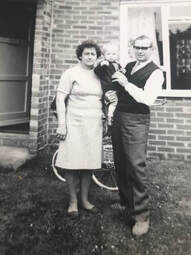
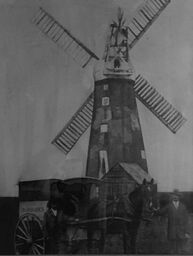
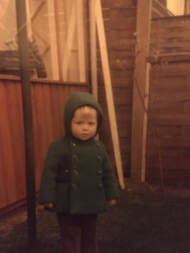
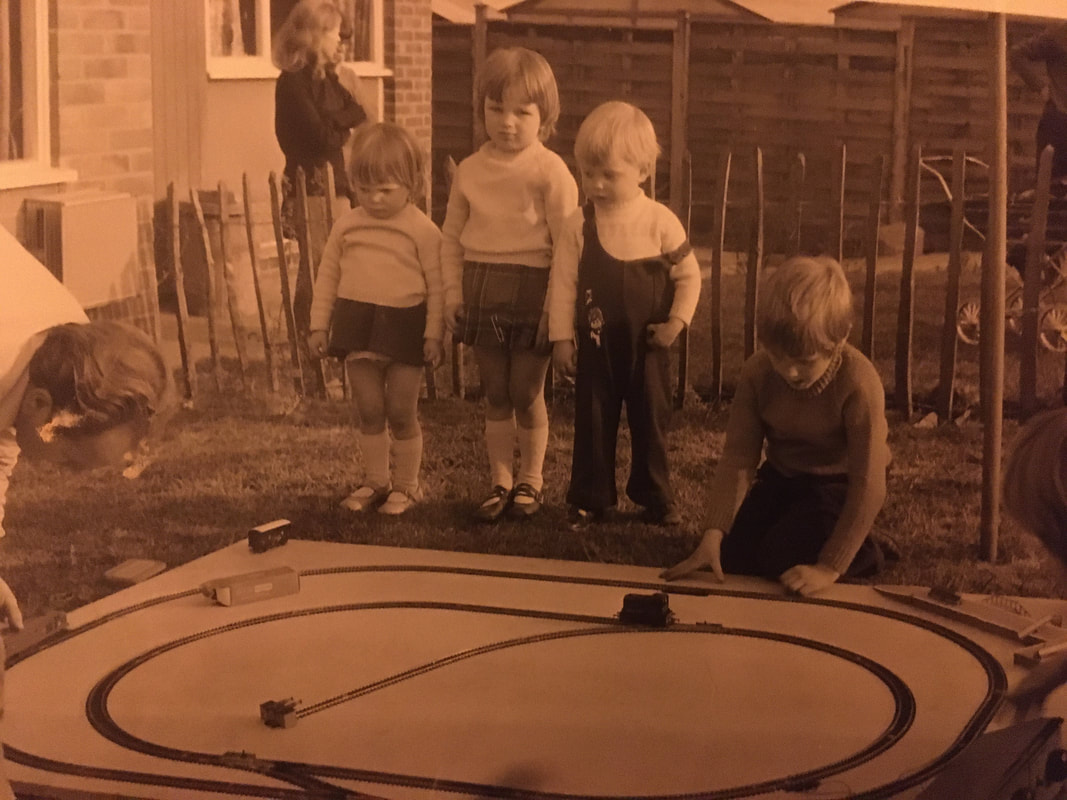
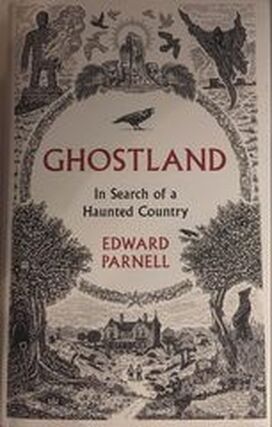

 RSS Feed
RSS Feed